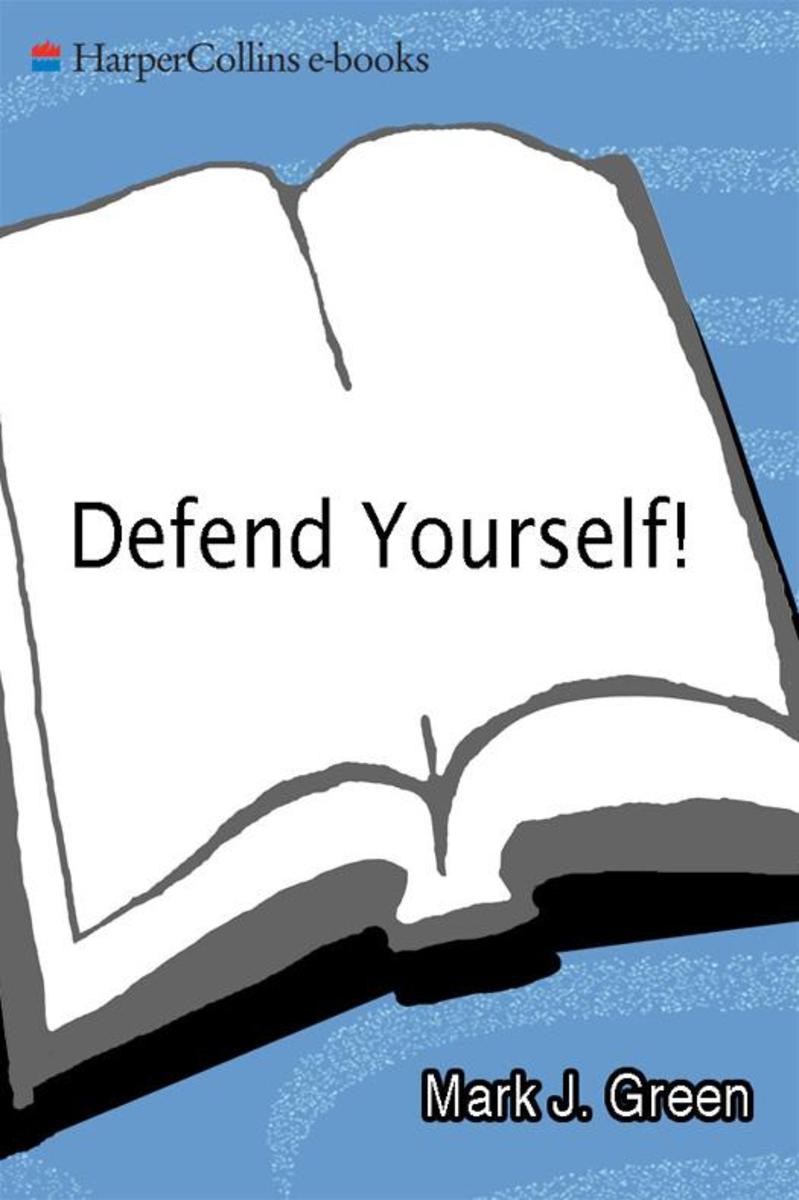
Defend Yourself!
¥95.16
Talk Back / Fight BackPatient, client, employee, small business owner, taxpayer, investor, consumer it's time to defend yourself! Why should anyone tolerate an HMO not paying for his emergency surgery because he didn't give notice beforehand or accept a higher auto insurance rate because she lives in a low-income communityA large body of laws and regulations exists to give average workers and consumers the tools to talk back and fight back.
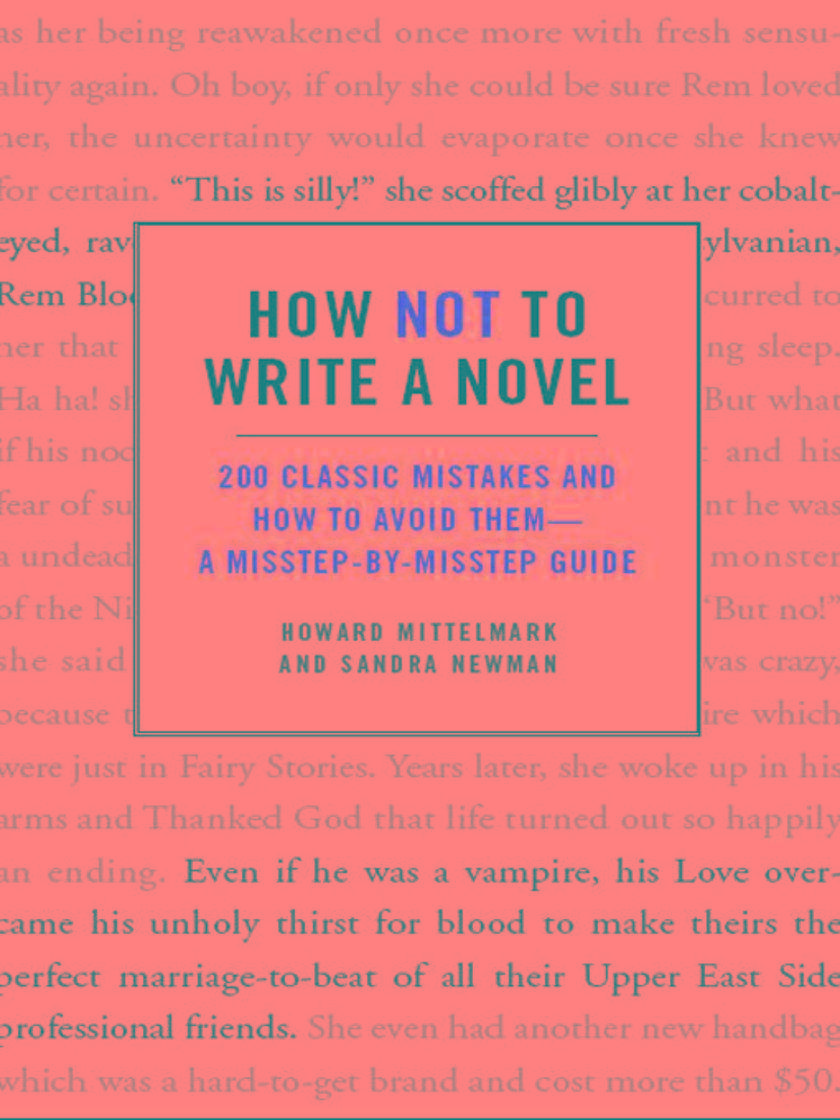
How Not to Write a Novel
¥94.10
"What do you think of my fiction book writing?" the aspiring novelist extorted. "Darn," the editor hectored, in turn. "I can not publish your novel! It is full of what we in the business call 'really awful writing.'" "But how shall I absolve this dilemmaI have already read every tome available on how to write well and get published!" The writer tossed his head about, wildly."It might help," opined the blonde editor, helpfully, "to ponder how NOT to write a novel, so you might avoid the very thing!" Many writing books offer sound advice on how to write well. This is not one of those books. On the contrary, this is a collection of terrible, awkward, and laughably unreadable excerpts that will teach you what to avoid at all costs if you ever want your novel published. In How Not to Write a Novel, authors Howard Mittelmark and Sandra Newman distill their 30 years combined experience in teaching, editing, writing, and reviewing fiction to bring you real advice from the other side of the query letter. Rather than telling you how or what to write, they identify the 200 most common mistakes unconsciously made by writers and teach you to recognize, avoid, and amend them. With hilarious "mis-examples" to demonstrate each manu*-mangling error, they'll help you troubleshoot your beginnings and endings, bad guys, love interests, style, jokes, perspective, voice, and more. As funny as it is useful, this essential how-NOT-to guide will help you get your manu* out of the slush pile and into the bookstore.
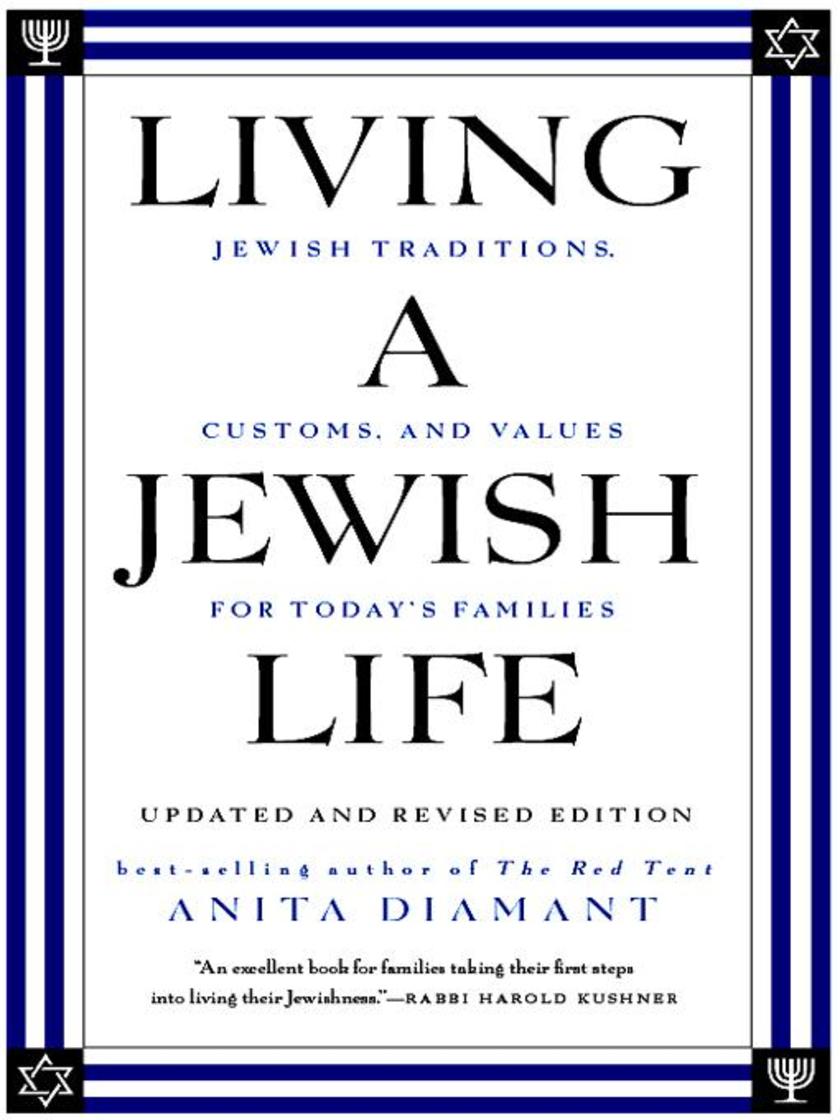
Living a Jewish Life, Updated and
¥94.10
Living a Jewish Life describes Judaism as not just a contemplative or abstract system of thought but as a blueprint for living fully and honorably. This new edition builds on the classic guide, which has been a favorite among Jewish educators and students for years. Enriched with additional resources, including online resources, this updated guide also references recent changes in the modern Jewish community, and has served as a resource and guide for none Jews as well as Jews. Addressing the choices posed by the modern world, Living a Jewish Life explains the traditions and beliefs of Judaism in the context of real life. It explores the spectrum of liberal Jewish thought, from Conservative to Reconstructionist to Reform, as well as unaffiliated, new age, and secular. Celebrating the diversity of Jewish beliefs, this guide provides information in ways that readers can choose how to incorporate Judaism into their lives. Readers will learn how to choose the right synagogue, and discover the meaning and significance of lighting Sabbath candles. "Shabbat," "Torah," "kosher," "mitzvah" and other key words are all defined in all of their complex and potent meanings. On the most basic level, this book explains the essential Jewish vocabulary, but more importantly, LIVING A JEWISH LIFE is a sensitive and comprehensive introduction that reveals the timeless nature of Jewish tradition, rich with history and relevant in the modern world.
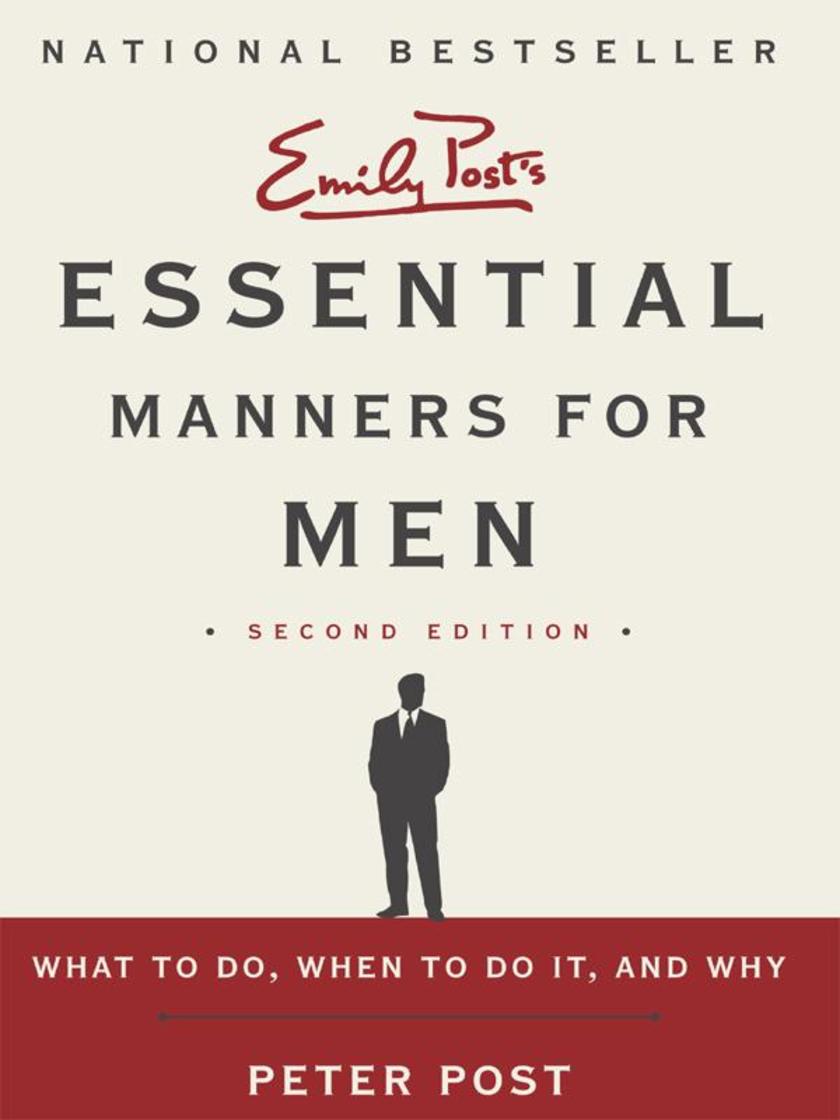
Essential Manners for Men 2nd Ed
¥94.10
In Essential Manners for Men, etiquette expert Peter Post tackles the issues of real concern for today's man, enabling him to make the right decisions about what to do and say in every situation that counts, whether in daily life, social life, or on the job. Sharp, savvy, and sensible—filled with accessible sidebars, tips, and stories from the author's own experiences—this classic New York Times bestselling handbook has been updated to reflect the realities of our modern times with all new material, including: ?Social media: social networking, gaming, and the world of online dating ?Communication in person: greetings, handshakes, and how to make the all-important good first impression ?Communication on-the-go: texting, e-mailing, and using smart phones ?Life changes: dealing with bumps in the road, from divorce to layoffs ?Weddings: the man's role, from groom to best man to usher, and the changing nature of the bachelor party ?Entertaining, dining, tipping Also: Sportsmanship Parenting Sharing living space with a roommate, spouse, or significant other Navigating the business dinner Throwing a great party or being a perfect guest . . . and much more.
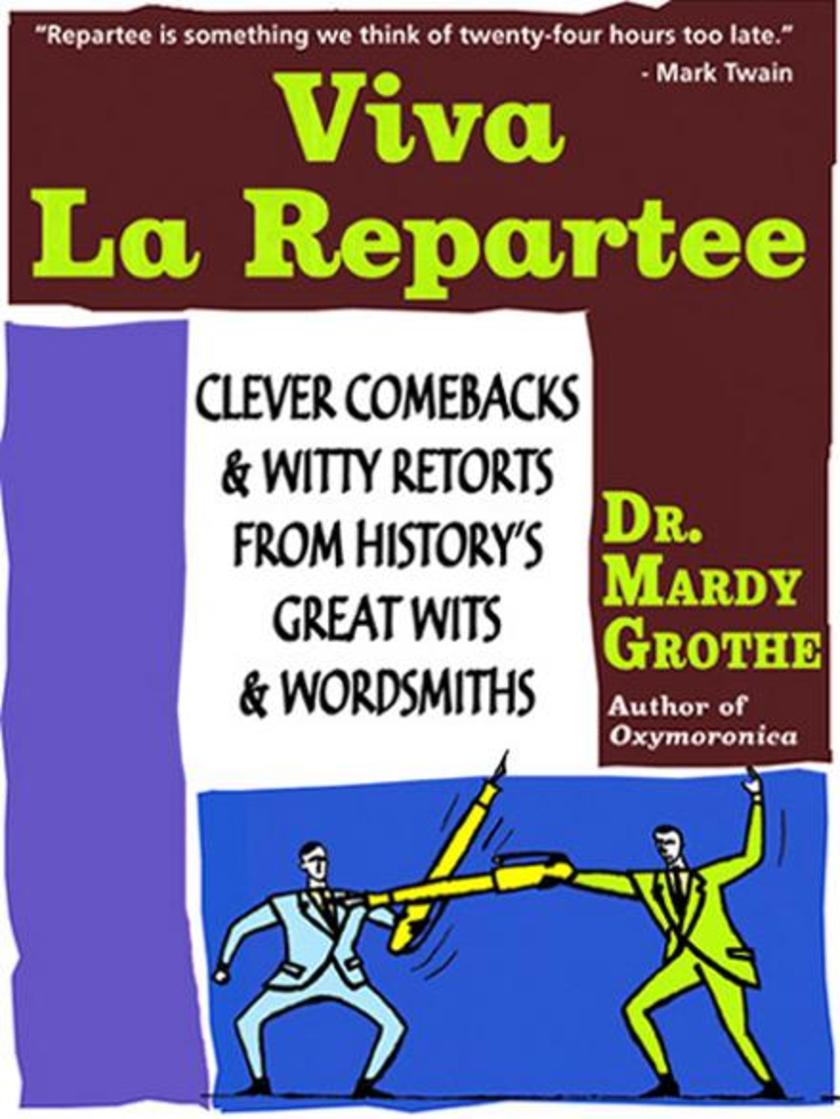
Viva la Repartee
¥94.10
For most of us, that perfect retort or witty reply often escapes us when we need it most, only to come to mind with perfect clarity when it's too late to be useful. The twentieth-century writer Heywood Broun described this all-too-common phenomenon when he wrote "Repartee is what we wish we'd said."In Viva la Repartee, Dr. Mardy Grothe, author of Oxymoronica, has lovingly assembled a collection of masterfully composed -- and perfectly timed -- replies that have turned the tables on opponents and adversaries. This delightful volume is a celebration of the most impressive retorts, ripostes, rejoinders, comebacks, quips, ad-libs, bon mots, off-the-cuff comments, wisecracks, and other clever remarks ever to come out of the mouths -- and from the pens -- of people throughout history. Touching on all areas of human endeavor, including politics, the arts, literature, sports, relationships, and even the risqué, the book features contributions from Oscar Wilde, Mark Twain, Dorothy Parker, Mae West, Groucho Marx, Winston Churchill, Dolly Parton, and scores more.As entertaining as it is intellectually enriching, Viva la Repartee is sure to capture the attention of language lovers and is the perfect antidote for anyone who's ever thought I wish I'd said that!
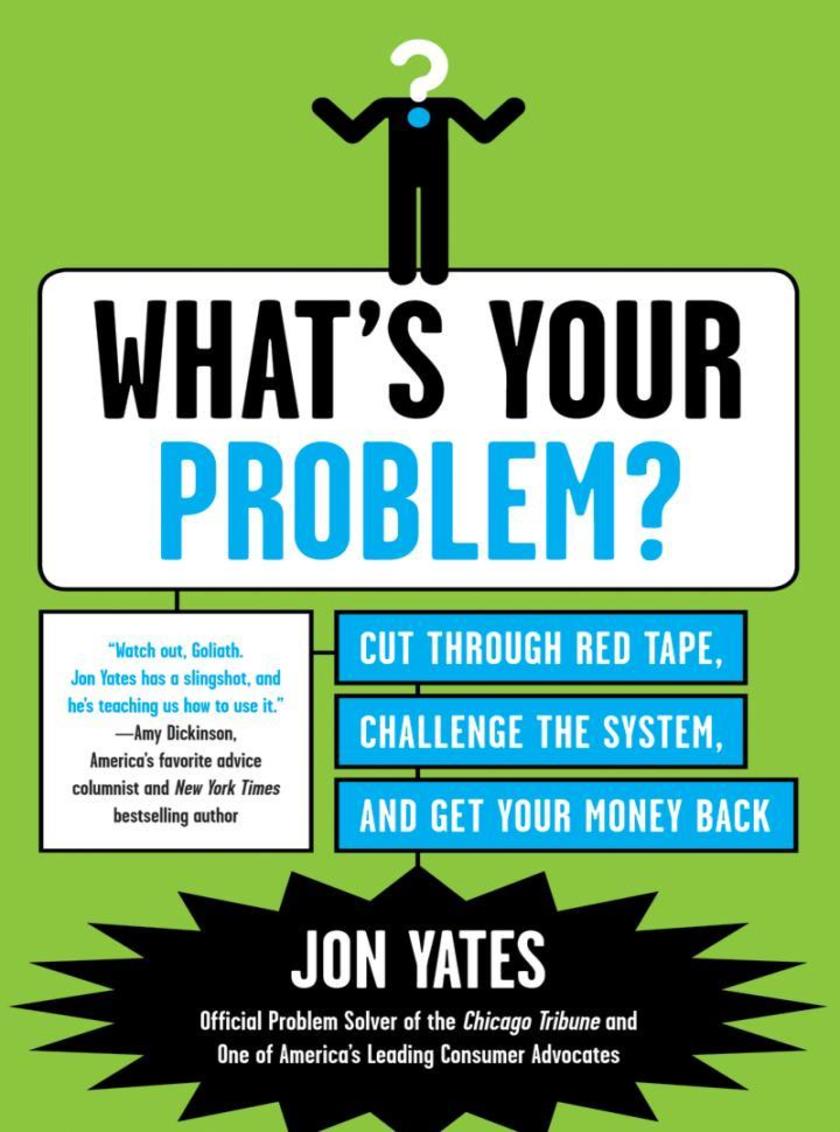
What's Your Problem?
¥90.90
You're being overcharged on your electric bill. Your health insurance denies a claim you know it should pay. The airline refuses to reimburse you for your lost luggage. Your contractor disappeared with the down payment. You just got a parking ticket for someone else's car. If these problems sound familiar, this is the book for you. As creator of the popular What's Your Problemcolumn in the Chicago Tribune, Jon Yates has helped thousands of people take charge of their problems and get satisfaction from airlines, utilities, government agencies, health insurance companies, and more. His readers have already gotten back more than $1 million of their hard-earned money from greedy businesses and agencies and now you can too! Packed with tips, strategies, and dozens of real life examples and success stories, What's Your Problemis a must-have book for every household in America.
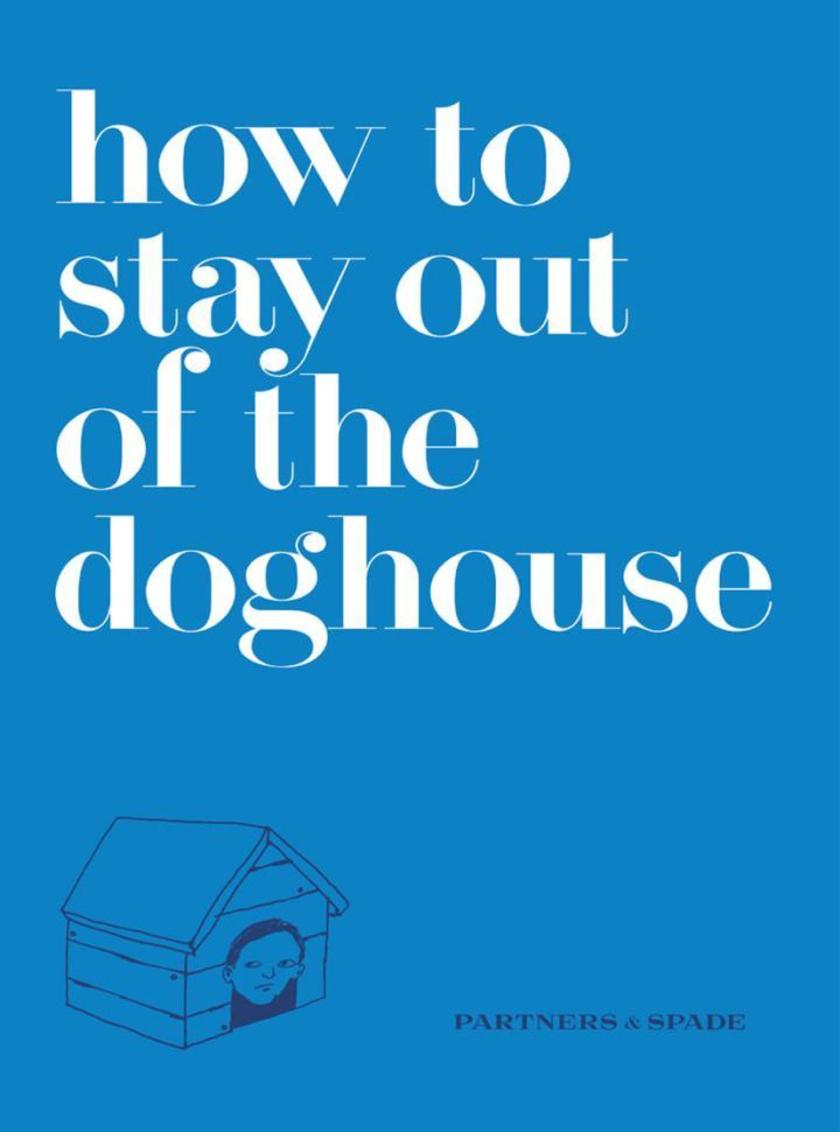
How to Stay Out of the Doghouse
¥90.77
As men, we can't help ending up in the doghouse for simply following our natural instincts.But follow the 50 tips in this book, and you'll spend less time out in the cold and more time getting scratches behind the ears and belly rubs.
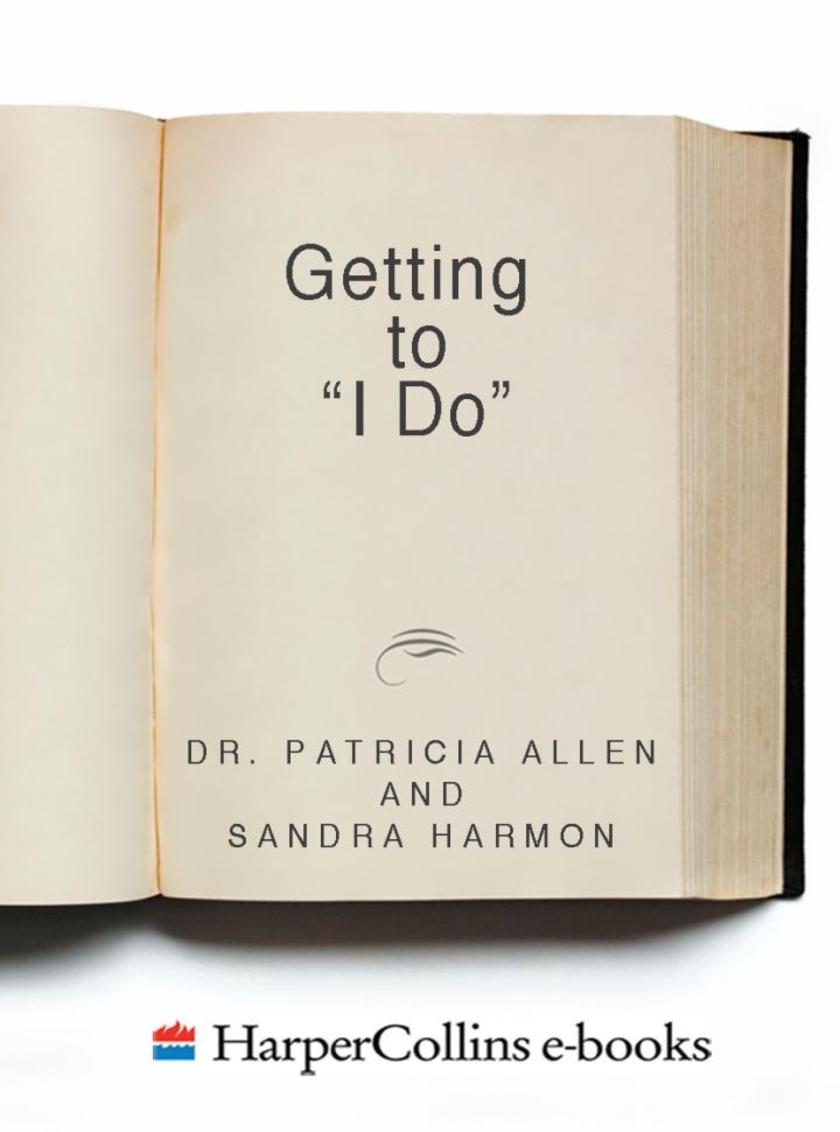
Getting To 'I Do'
¥90.77
Dr. Patricia Allen's jam-packed seminars in Los Angeles have resulted in over two thousand marriages. Now you too can take advantage of this proven step-by-step program.Here's what you'll learn: How to attract the right man When you should make the first move...and when you should not Why equality in a relationship may not be what you're looking for Why sex before commitment is a bad deal How to have sensational sex What makes a man run away from a relationship How to know when you're giving too much How to get what you want without asking What makes a man want to commit How to be engaged to the right man within a year!
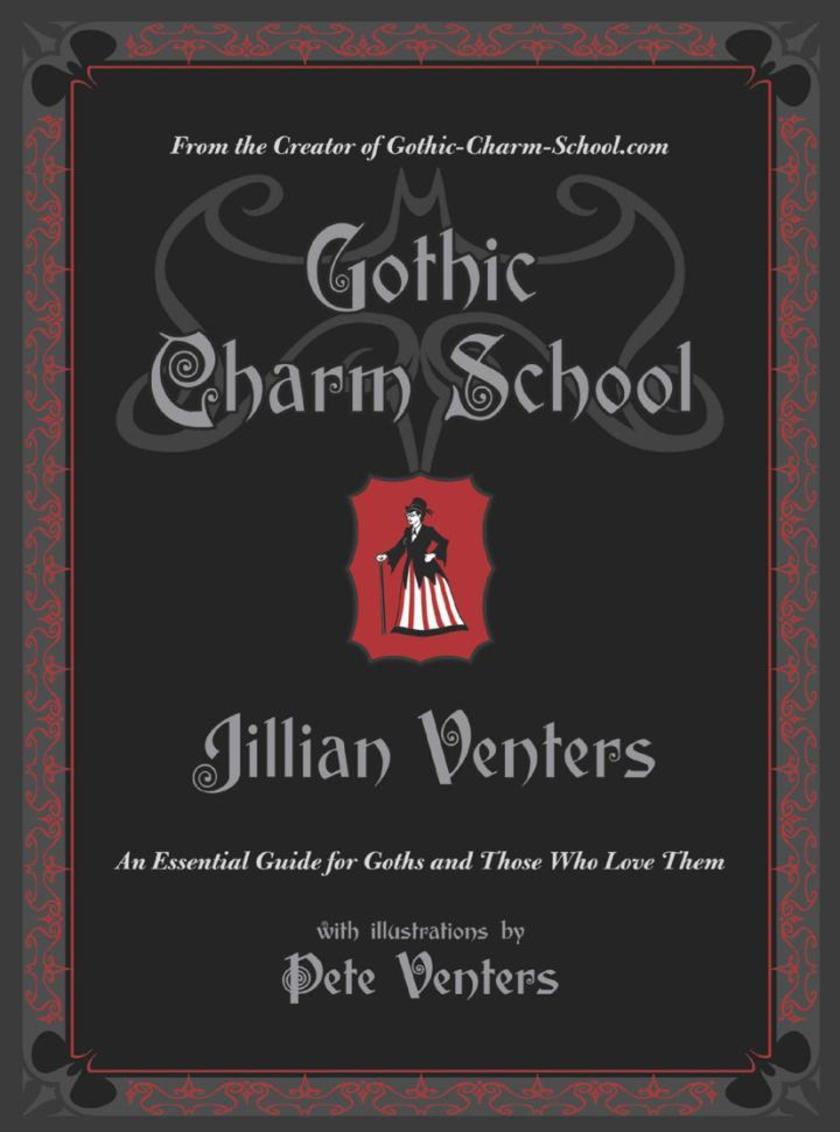
Gothic Charm School
¥90.51
An essential, fully illustrated guidebook to day-to-day Goth living There's more to being a Goth than throwing on some black velvet, dyeing your hair, and calling it a day (or a night). How do you dress with morbid flair when going to a job interviewIs there such a thing as growing too old to be a GothHow do you explain to your grandma that it's not just a phase?Jillian Venters, a.k.a. "the Lady of the Manners," knows how to be strange and unusual without sacrificing politeness and etiquette. In Gothic Charm School, she offers the quintessential guide to dark decorum for all those who have ever searched for beauty in dark, unexpected places, embraced their individuality, and reveled in decadence . . . and for families and friends who just don't understand.
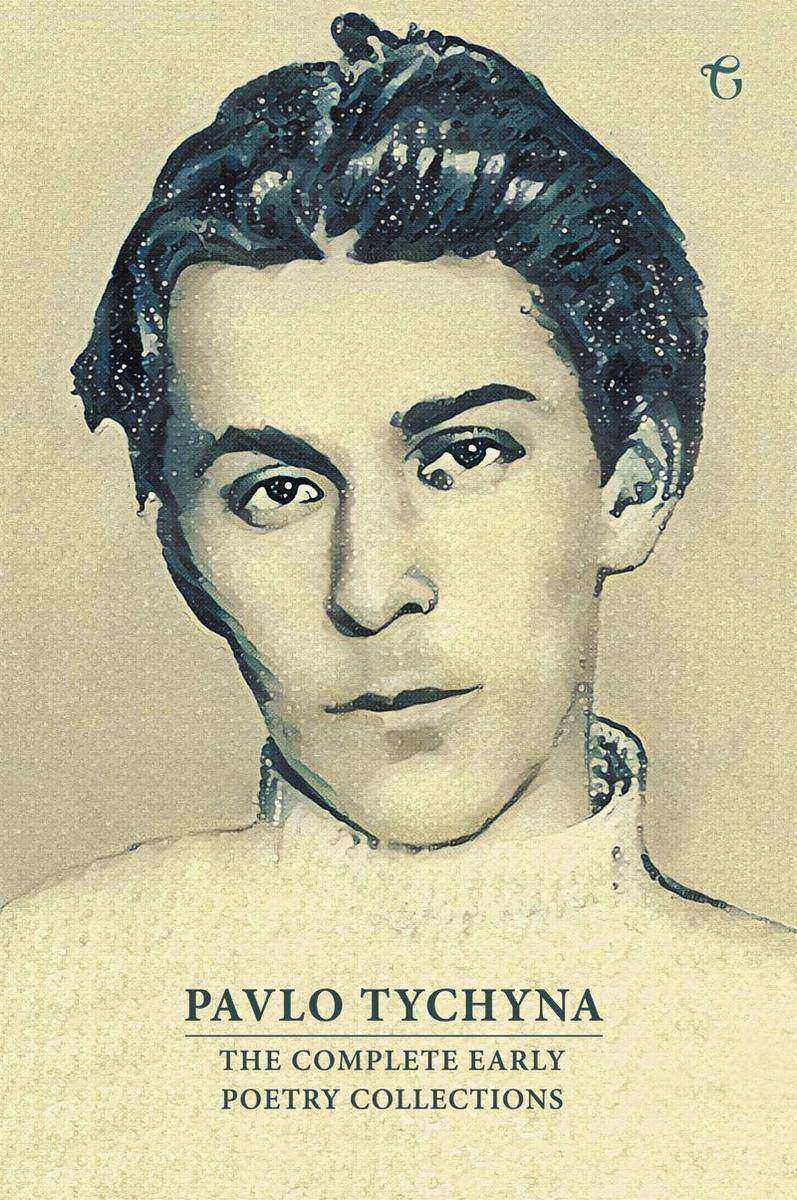
Pavlo Tychyna: The Complete Early Poetry Collections
¥90.03
Pavlo Tychyna (1891-1967) is arguably the greatest Ukrainian poet of the twentieth century and has been described as a “tillerman’s Orpheus” by Ukrainian poet and literary critic Vasyl Barka. With his innovative poetics, deep spirituality and creative word play, Tychyna deserves a place among the pantheon of his European contemporaries such as T.S. Eliot, Ezra Pound, Rainer Maria Rilke, Federico Garcia Lorca, and Osip Mandelstam. His early collections Clarinets of the Sun (1918), The Plow (1920), Instead of Sonnets and Octaves (1920), The Wind from Ukraine (1924), and his poetic cycle In the Orchestra of the Cosmos (1921) mark the pinnacle of his creativity and poetically document the emotional and spiritual toll of the Revolution of 1917 as well as the Civil War and its aftermath in Ukraine. Tychyna coined the term “Clarinetism” to describe his earliest works, which intrinsically exhibit the clarity and the haunting sound of a clarinet. He harkens back to ancient Greek literature to form what has been called the “tragic lyric” in his short collection Instead of Sonnets and Octaves, which gives a personal, humanistic understanding to the tragic events of the Revolution. John Fizer has noted Tychyna’s close affinity with Walt Whitman’s cosmism, particularly in his cycle In the Orchestra of the Cosmos. While Tychyna in may ways displays the moral conscience of his times in his early works, later in his life he acquiesced to Soviet authorities in order to survive the horrors of Stalin’s regime. He was forced by authorities to refuse a nomination for the Nobel Prize, the only reason for which would have been his Ukrainian ethnicity. This edition of Tychyna’s complete early works includes translations of all his major early collections as well as his poetic masterpieces “Mother was Pealing Potatoes,” “Funeral of My Friend,” and his highly patriotic “In Memory of the Thirty.” The volume includes a guest introduction by eminent Ukrainian poet Viktor Neborak. Translated by Michael M. Naydan.
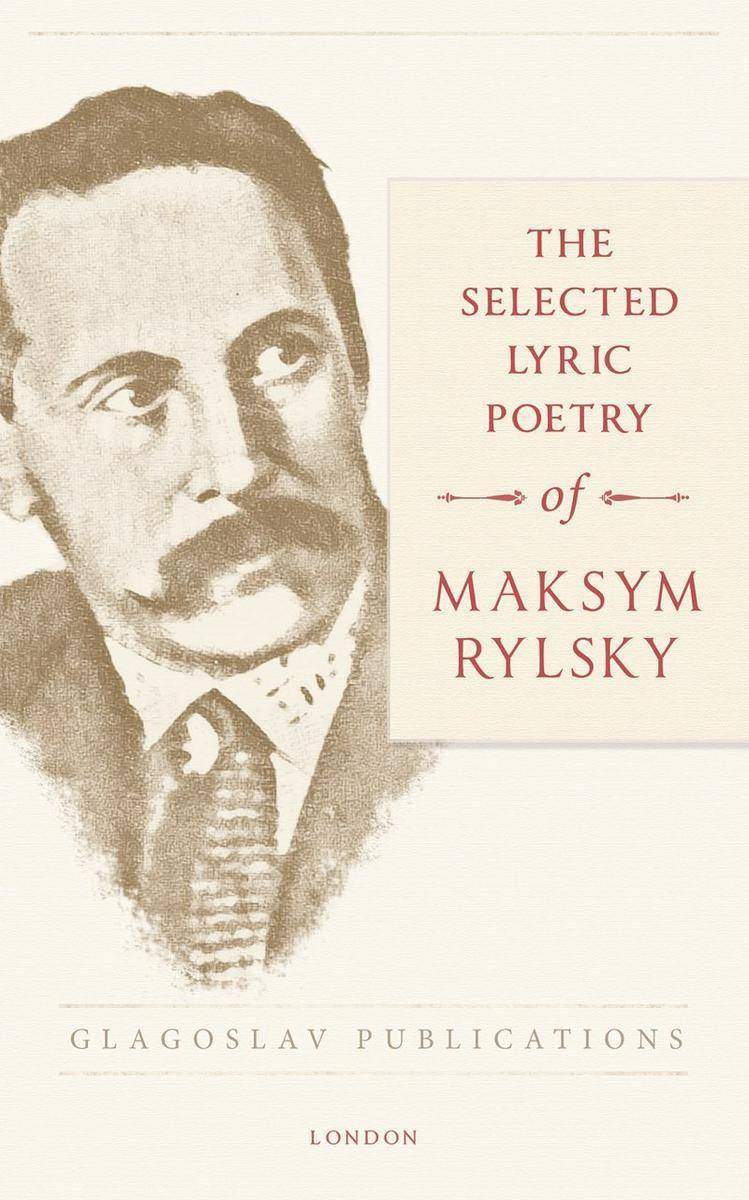
The Selected Lyric Poetry Of Maksym Rylsky
¥90.03
Maksym Rylsky (1895-1964) is one of the most outstanding Ukrainian poets of the the 20th century and master of the genres of the modern sonnet and the long narrative poem. He was closely associated with the Neoclassicist group of Ukrainian poets, who employed traditional poetic forms with rhyme and meter, wrote in a clear and accessible contemporary idiom, and often referenced Ancient Greek and Roman mythology as well as numerous other authors from world literature in their poetry. Rylsky was also a prolific translator from English, French, German, and Polish as well as a folklore and literary scholar, who worked most of the earlier part of his life as a teacher of philology. He published his first book of poetry at the precocious age of fifteen—On White Islands in 1910. His other early books of poetry include The Edge of the Forest: Idylls (1918), Under Autumn Stars (1918), The Blue Distance (1922), Long Poems (1924), Through a Storm and Snow (1925), Beneath Autumn Stars (1926), Thirteenth Spring (1926), Where Roads Meet (1929), and Echo and Re-echo (1929). Rylsky gained considerable popularity among the Ukrainian reading public for his neo-romantic contemplative musings and intimate lyrical poetry that focused on love, life and nature. While his poetry was completely apolitical, at the end of the Ukrainian cultural renaissance in the 1920s that was crushed by Stalin, Rylsky was sternly rebuked in the state-controlled press for focusing on the personal and not writing in service to the state. In 1931 the Soviet secret police, the NKVD, arrested and publicly humiliated him. He was released in 1932 after he agreed to write in the style of socialist realism and was one of the few prominent Ukrainian writers to survive the Stalinist purges of the 1930s. During the wartime period he wrote two masterful long poems that deviated from socialist realism—“Thirst” (1942) and “Journey to Youth” (1941-4), for which he was again publicly chastised. In 1942 he became Director of the Institute of Fine Arts, Folklore and Ethnography in Kyiv, a post that he held until his death in 1964. The Institute now bears his name. He published some 30 collections of original poetry during his lifetime as well as numerous translations and scholarly works. By 1974 almost five million copies of his works in the original or in translation had appeared in the USSR. In his last two books—In the Shadow of the Lark (1961) and Winter Notes (1964) published during The Thaw, a period of relaxed censorship during the reign of Nikita Khrushchev, Rylsky’s poetic voice returned to the stature of his early poetry. This selected works edition includes poetry from virtually all of Rylsky’s early collections of poetry, with selection primarily based on esthetic principles; the powerful long poem “Thirst,” penned during the darkest days of World War II for Ukraine; and other poems from various periods of his life. Translated by Michael M. Naydan. With a guest introduction by Maria Zubrytska
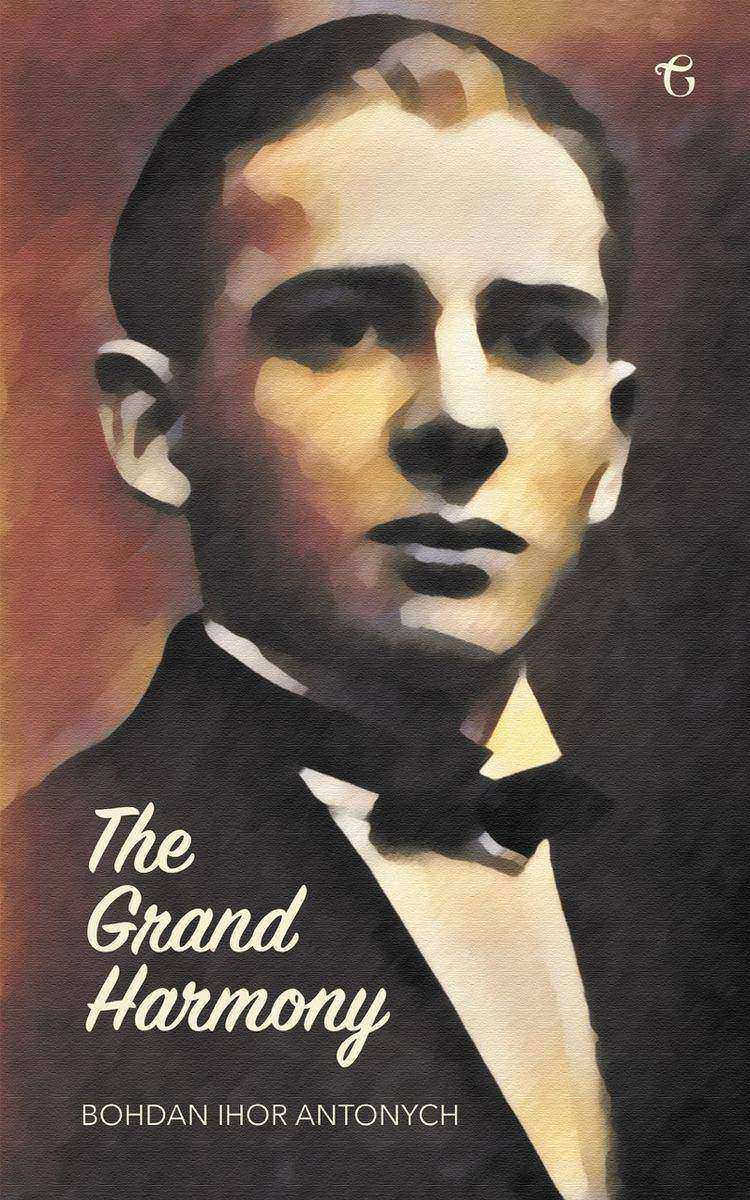
The Grand Harmony
¥90.03
The extraordinarily inventive Ukrainian poet and literary critic Bohdan Ihor Antonych (1909-1937), the son of a Catholic priest, died prematurely at the early age of 28 of pneumonia. Originally from the mountainous Lemko region in Poland, where a variant of Ukrainian is spoken, he was home-schooled for the first eleven years of his life because of frequent illness. He began to write poetry in Ukrainian after he moved to the Western Ukrainian city of Lviv to continue his studies at the University of Lviv. He published just three collections of poetry in his lifetime: A Greeting to Life (1931), Three Rings (1934), and The Book of the Lion (1936), with the latter two firmly establishing his reputation as one of the best poets of his time in Ukraine. Three additional collections, The Green Gospel (1938), Rotations (1938), and The Grand Harmony (1967), were published posthumously. A collection of poems on religious themes written in 1932 and 1933, The Grand Harmonyis a subtle and supple examination of Antonych’s intimately personal journey to faith, with all its revelatory verities as well as self-questioning and doubt. The collection marks the beginning of Antonych’s development into one of the greatest poets of his time. During Soviet times it was banned for its religious content. It was first published in its entirety in 1967 in New York. The Grand Harmony first appeared in English translation in a bilingual edition with Litopys Publishers in 2007, which has long been sold out. The poems “Musica Noctis,” “De Morte I,” “Ars Poetica 1” and “Liber Peregrinorum 3” were reprinted in The Essential Poetry of Bohdan Ihor Antonych: Ecstasies and Elegies (Bucknell University Press, 2010). One can find additional poetic renderings of Antonych’s selected poetry in the translations of various well-known American poets under the title A Square of Angels (Ann Arbor: Ardis Publishers, 1977), which was edited by Bohdan Boychuk.
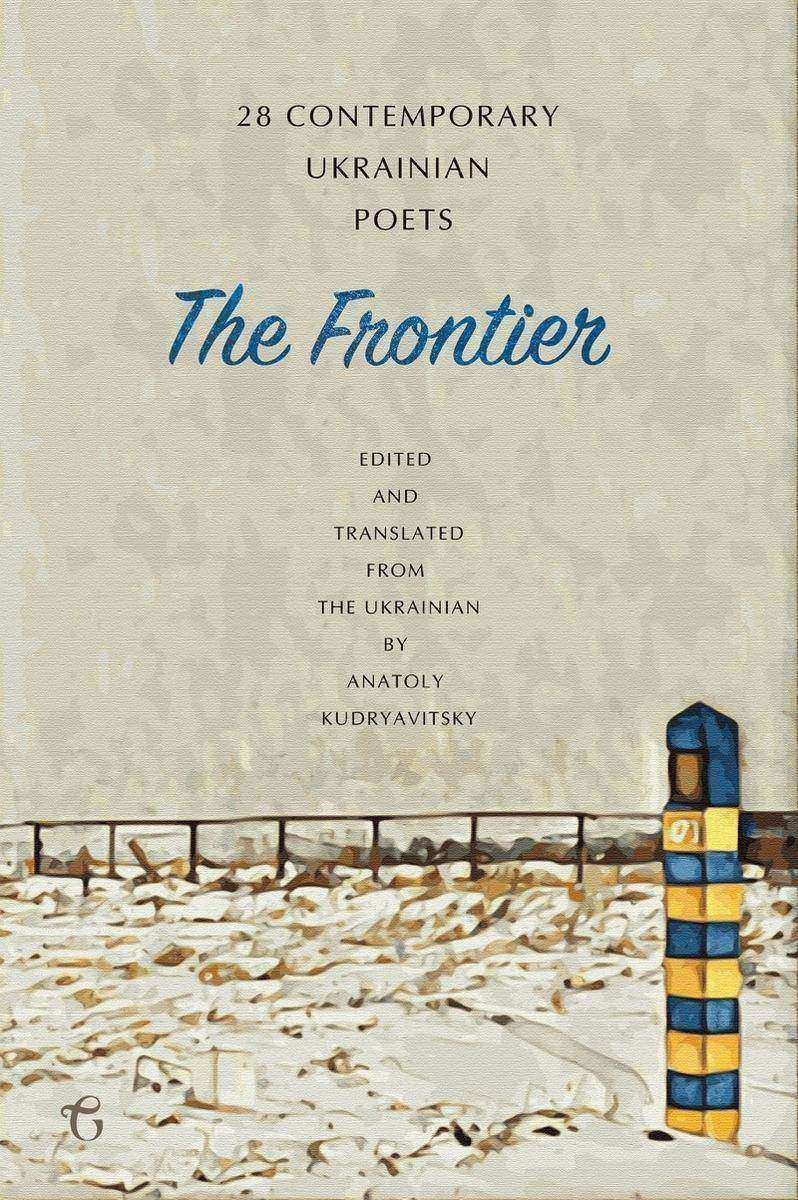
The Frontier: 28 Contemporary Ukrainian Poets: An Anthology (A Bilingual Edition
¥90.03
This anthology reflects a search of the Ukrainian nation for its identity, the roots of which lie deep inside Ukrainian-language poetry. Some of the included poets are well-known locally and internationally; among them are Serhiy Zhadan, Halyna Kruk, Ostap Slyvynsky, Marianna Kijanowska, Oleh Kotsarev, Anna Bagriana and, of course, the living legend of Ukrainian poetry, Vasyl Holoborodko. The next Ukrainian poetic generation also features prominently in the collection. Such poets as Les Beley, Olena Herasymyuk, Myroslav Laiuk, Hanna Malihon, Taras Malkovych, Julia Musakovska, Julia Stakhivska and Lyuba Yakimchuk are the ones Ukrainians like to read today, and each of them already has an excellent reputation abroad due to festival appearances and translations to European languages. The work collected here documents poetry in Ukraine responding to challenges of the time by forging a radical new poetic, reconsidering writing techniques and language itself. Edited and translated from the Ukrainian by Anatoly Kudryavitsky.
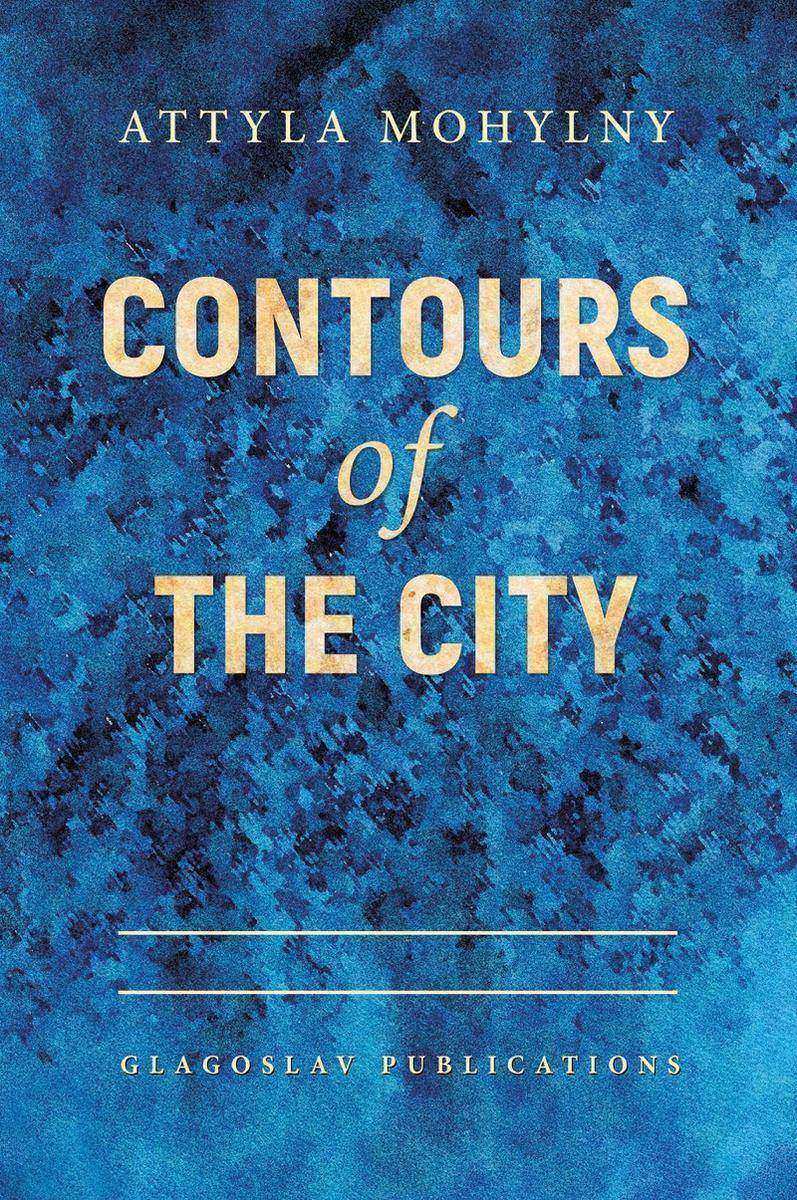
Contours of the City
¥90.03
Contours of the City arguably comprises one of the finest collections of free verse ever written in Ukrainian even though it was largely overlooked when it first appeared during the political transition to Ukrainian independence in 1991. It certainly deserves a broader audience both in Mohylny’s homeland as well as in the wider world. While it may be described as a one-hit wonder because of the poet’s premature death, it remains a brilliant hit for all time. Translator Michael Naydan received the Eugene Kayden Meritorious Achievement Award in Translation from the University of Colorado for a partial manuscript of his translations of Mohylny’s poetry into English in 1993. This edition includes a complete translation of Mohylny’s collection Contours of the City along with several poems translated by Virlana Tkacz and Wanda Phipps.
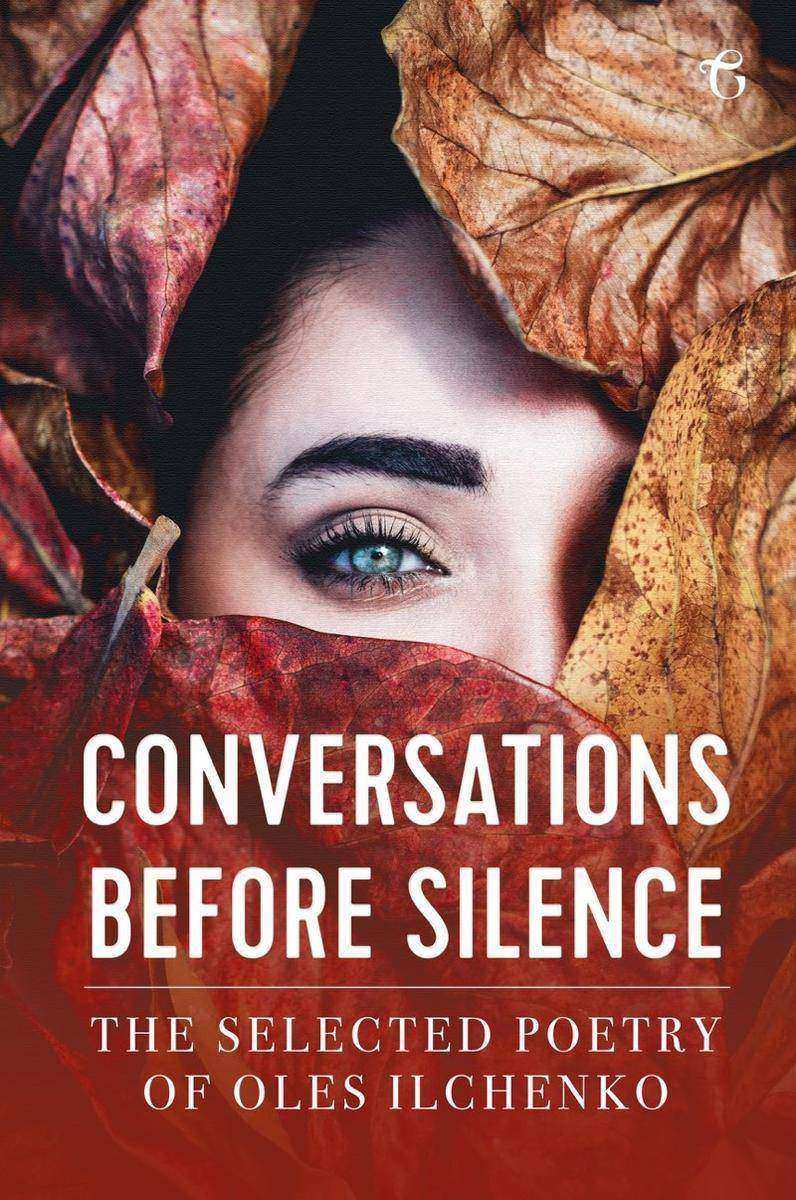
Conversations before Silence: The selected poetry of Oles Ilchenko
¥90.03
An avid reader of English-language poets such as William Carlos Williams and Stanley Kunitz, Ilchenko is one of the best Ukrainian poets writing in free verse today. His poetry is associative, flitting, and fragmentary. At times he does not form complete sentences in his poems and links words together into phrases before shifting into another thought or idea. The language of his poetry has a tendency to collapse into itself, often forcing the reader to reevaluate a word or line, to reread a previous word to focus on the poet’s inner logic. This fragmentary incompleteness and permeability mimics much the way human consciousness works without the filter of the written communicative convention of sentences and grammatical structure. This “slipperiness” and rapid shifting of voice comprises one of the essential invariants in Ilchenko’s poetics. The poet also flaunts many traditional poetic Ukrainian conventions. Like ee cummings he tends to avoid capital letters or punctuation such as exclamation points. One will find only commas and dashes for pauses, and an occasional period in his poems, which do not always end with the finality of that punctuation mark. In doing this, the poet often suggests a fragment or slice of his life broken off on the page and to be continued at some point in time. He is a fascinating poet whose idiom and unique manner of expression translates seamlessly into the poetics of contemporary English.
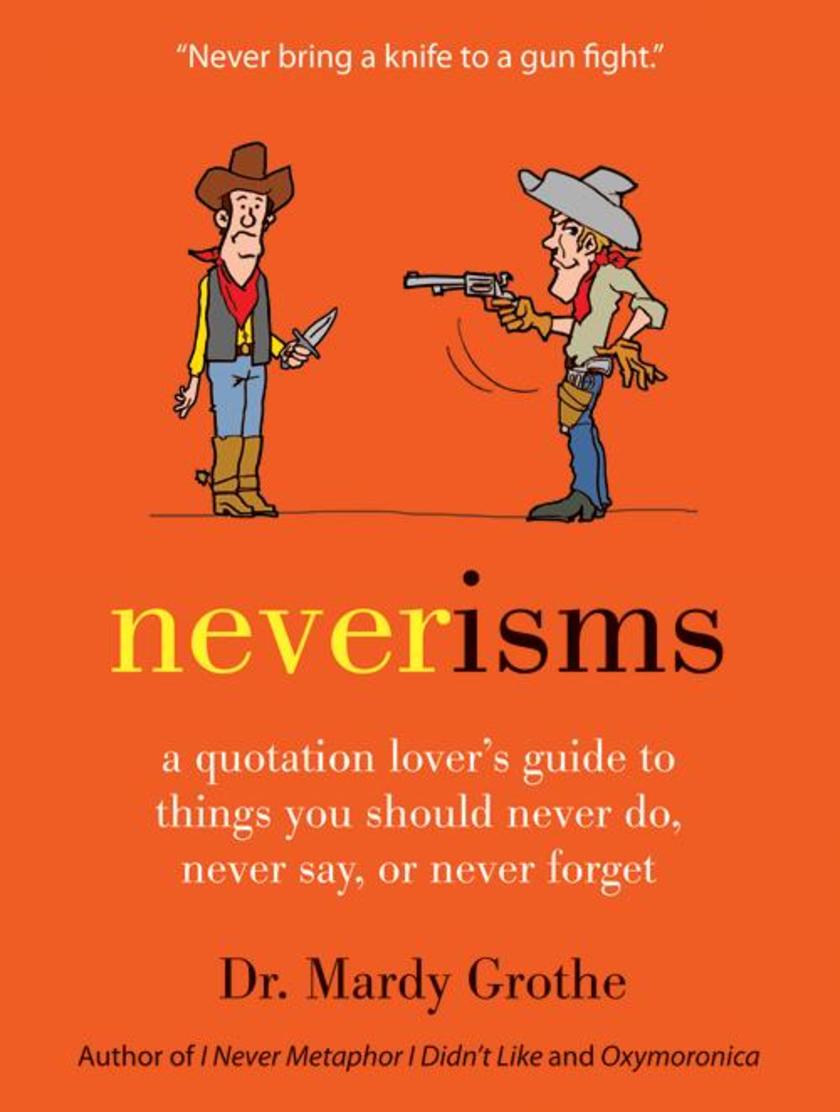
Neverisms
¥88.56
"Never let 'em see you sweat." "Never change diapers in mid-stream." "Never let a crisis go to waste." "Never ruin an apology with an excuse." "Never go to a doctor whose office plants have died." When we strongly encourage people to do something, it's called an exhortation. But what is the proper term for strongly discouraging peopleOne candidate is admonition. Another is dehortation, the opposite of exhortation. But perhaps the best term for an emphatic piece of dissuasive advice is neverism. You won't find the term in any dictionary (at least not yet) because quotation anthologist Dr. Mardy Grothe coined it himself for this collection of nearly two thousand quotable cautionary warnings. With the whimsical and witty intermixed with the serious and profound, contributors range from Aesop and Marcus Aurelius to John Wayne and Mae West. Grothe also tells the fascinating "back stories" of scores of classic quotations as well as the history of hundreds more that have never before appeared in a quotation anthology. Organized by topics such as Wit & Wordplay, Politics & Government, Sports, Stage & Screen, and The Literary Life, this is a book about quotations as well as a book of them. Neverisms is sure to delight quotation lovers and language aficionados everywhere.
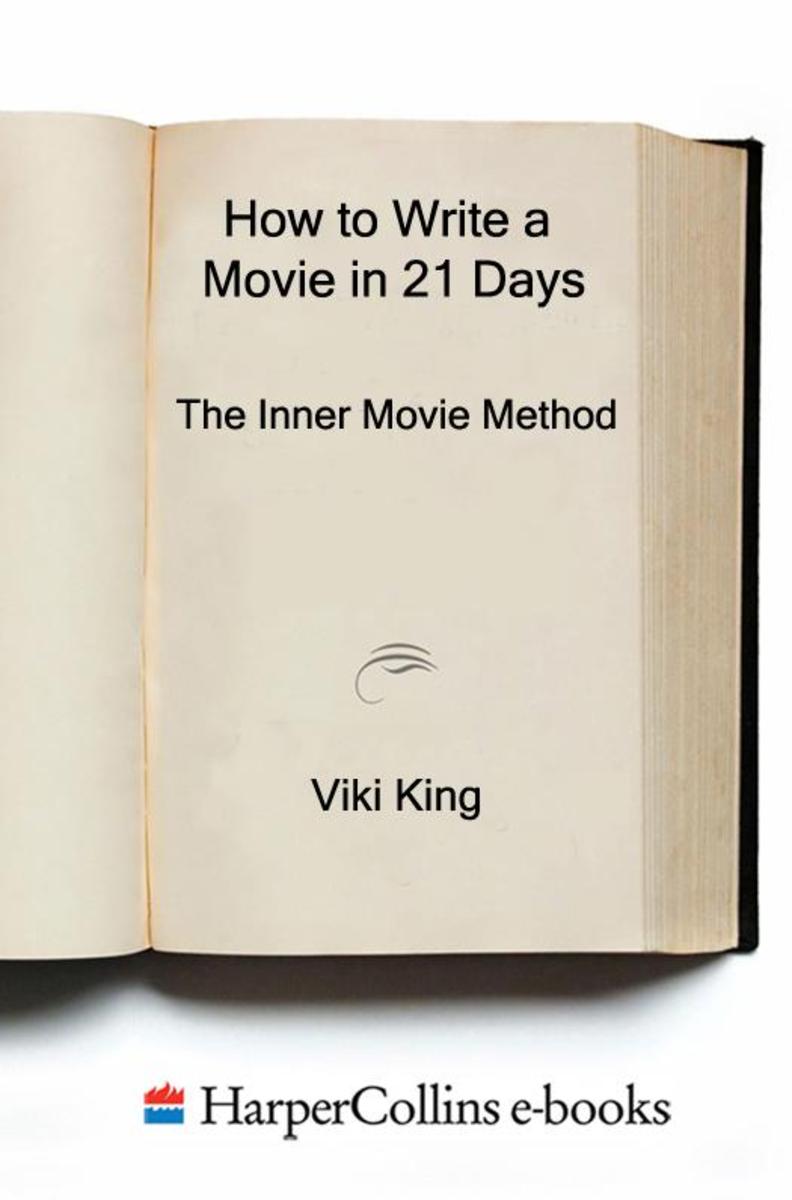
How to Write a Movie in 21 Days
¥88.56
The ultimate survival guide, How to Write a Movie in 21 Days takes the aspiring screenwriter the shortest distance from blank page to complete *.Viki King's Inner Movie Method is a specific step-by-step process designed to get the story in the writer's onto the page. This method guides the would-be screenwriter through the writing of a movie. It answers such questions as: How to clarify the idea you don't quite have yet How to tell if your idea is really a movie How to move from what you want to say saying it How to stop getting ready and start Once you know what to write, the Inner Movie Method will show you how to write it. It also addresses such issues as: How to pay the rent while paying your dues What to say to your spouse when you can't come to bed How to keep going when you think you can't For accomplished screenwriters honing their craft, as well as those who never before brought their ideas to paper, How to Write a Movie in 21 Days is an indispensable guide. And Viki King's upbeat, friendly style is like having a first-rate writing partner every step of the way.
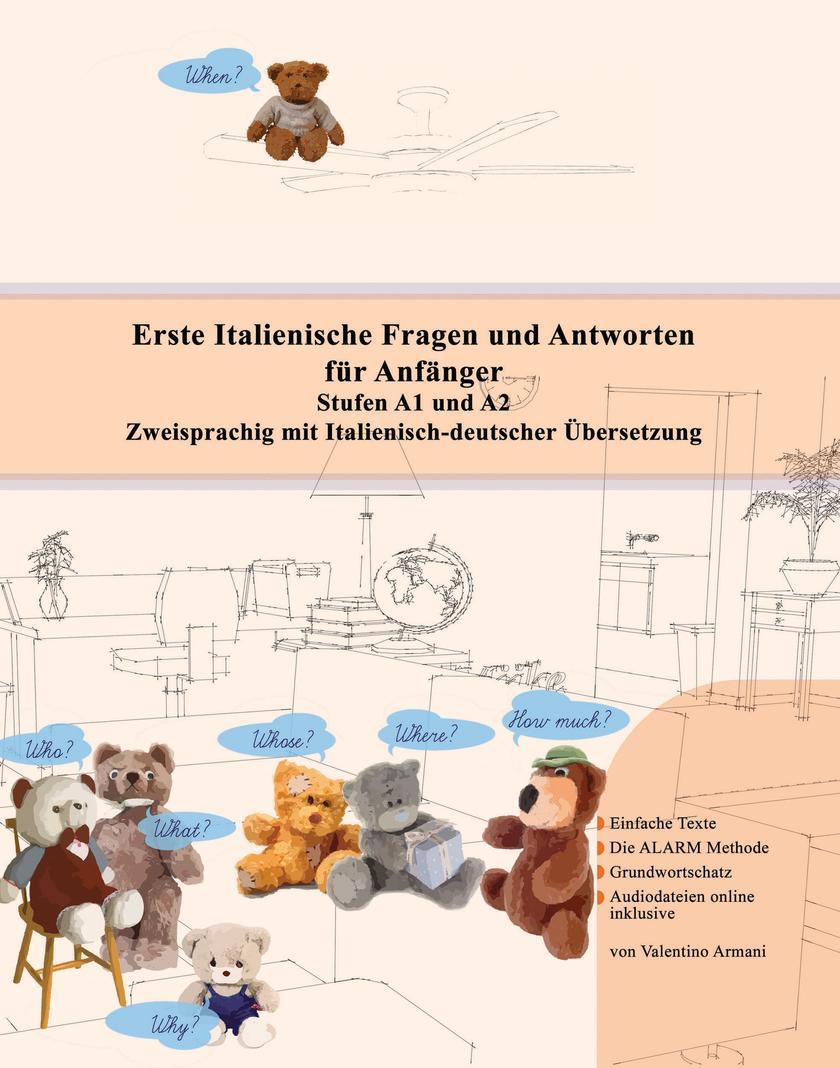
Erste Italienische Fragen und Antworten für Anf?nger
¥86.00
Erste Italienische Fragen und Antworten für Anf?nger
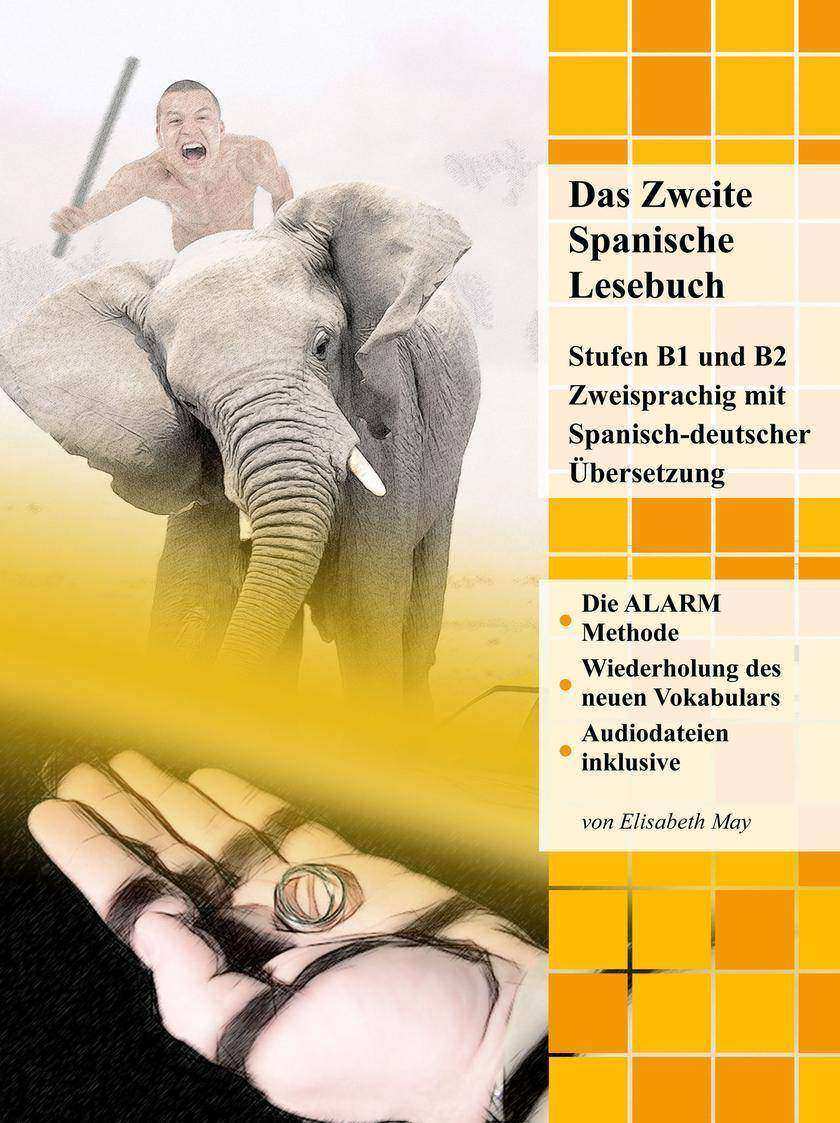
Das Zweite Spanische Lesebuch: Stufen B1 und B2 Zweisprachig mit Spanisch-deuts
¥86.00
Das Zweite Spanische Lesebuch: Stufen B1 und B2 Zweisprachig mit Spanisch-deutscher ?bersetzung
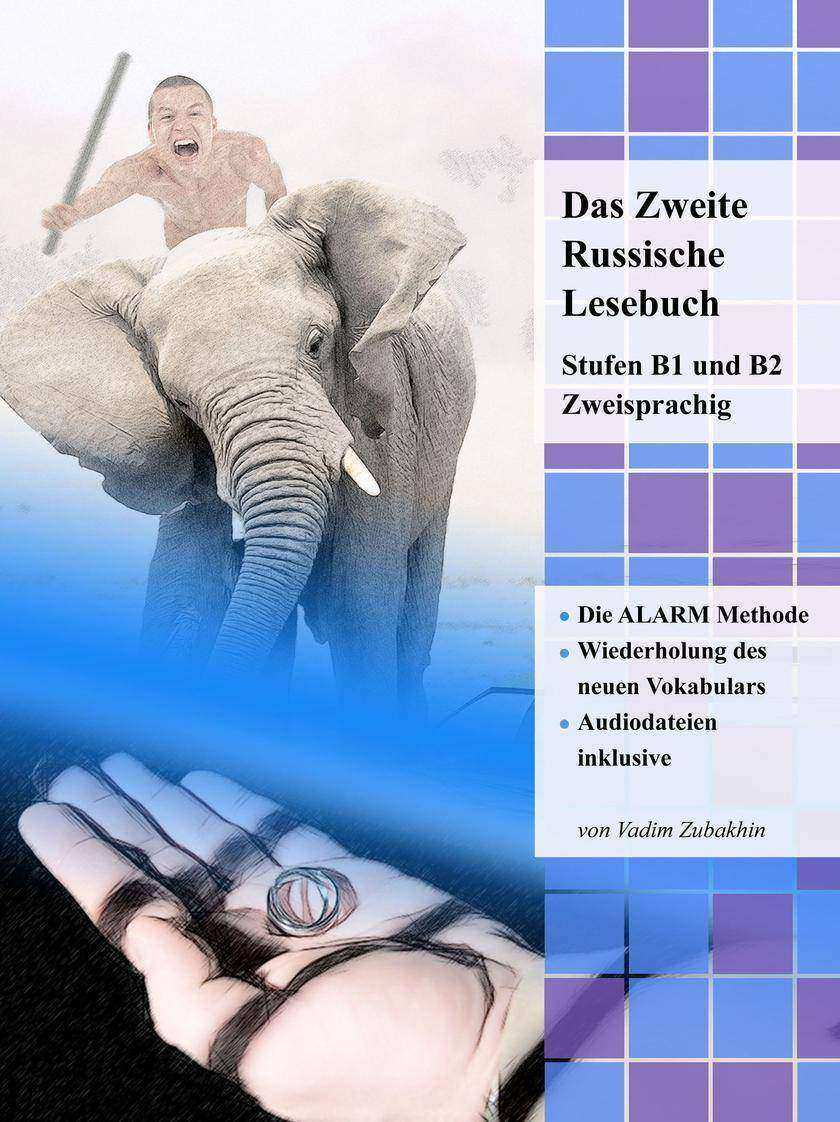
Das Zweite Russische Lesebuch: Stufen B1 und B2 Zweisprachig mit Russisch-deutsc
¥86.00
Das Zweite Russische Lesebuch: Stufen B1 und B2 Zweisprachig mit Russisch-deutscher ?bersetzung
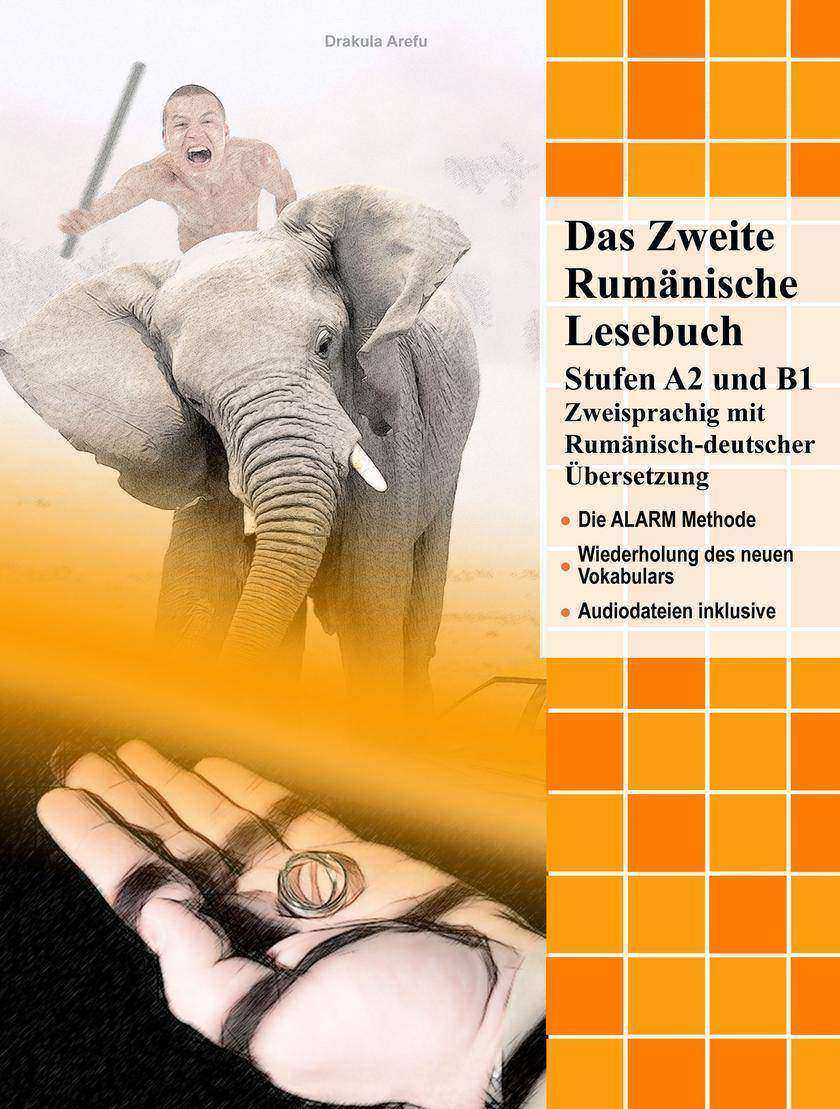
Das Zweite Rum?nische Lesebuch: Stufen A2 und B1 Zweisprachig mit Rum?nisch-deut
¥86.00
Das Zweite Rum?nische Lesebuch: Stufen A2 und B1 Zweisprachig mit Rum?nisch-deutscher ?bersetzung




 购物车
购物车 个人中心
个人中心



